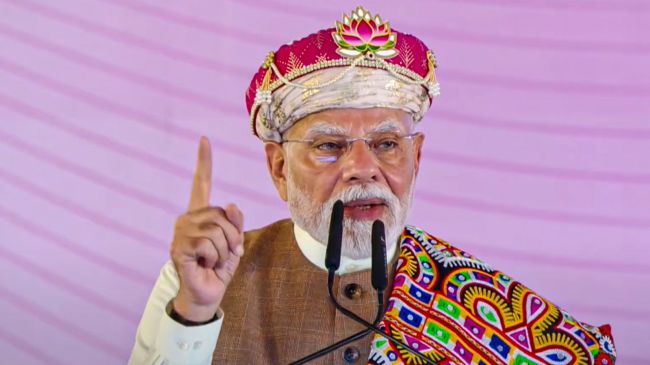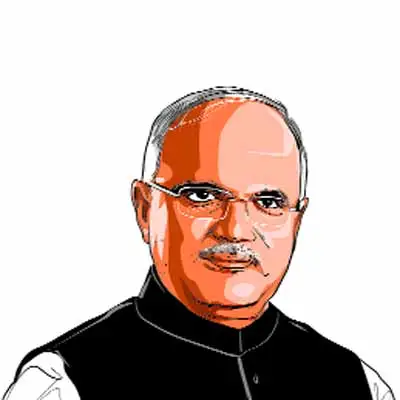Opinion Seven factors that help us understand the value that PM Modi adds to Indian politics and governance
At 75, Modi is a textbook case of transformational leadership. The main source of his ability to add great value comes through his commitment, credibility, courage of conviction and creativity
 At 75, Modi is a textbook case of transformational leadership
At 75, Modi is a textbook case of transformational leadership As Prime Minister Narendra Modi turns 75 — and as he prepares to complete a quarter century in governance soon — it is pertinent to discuss what value he continues to add to India’s polity and governance. Probing for answers to this question also helps gain insight into some unique characteristics of PM Modi’s personality in general and leadership in particular. There are at least seven key factors that make him stand apart. Understanding these factors may also help Modi’s critics, perplexed by his enduring popularity and flummoxed by voters’ continued confidence in him.
First, Modi comes across as a politician with no vested interests, no baggage; a rarity in politics today. Essentially a pracharak, people are convinced that Modi has no personal, selfish agenda. Over the years, the quality of political leadership in India had deteriorated thanks to factors like nepotism and the use of political power for personal wealth creation. PM Modi is free of these factors, and so stands head and shoulder above most other politicians.
Second, PM Modi is one of the few politicians to have mastered the art of implementation. As rightly analysed by Nripendra Mishra, his success in this comes from effective monitoring, timely intervention, and clarity in communication. Strong commitment and, more than that, the political will with which the PM tackles issues make him a true practitioner of good governance. Resoluteness in following up, creating a strong culture of accountability and continued efforts to motivate actual implementers are the key factors for PM Modi’s success on the implementation front.
Behind Modi’s mastery over the art of implementation is his clarity of thoughts. Modi, essentially, is a thought leader. His concept of Atmanirbhar Bharat, his emphasis on Panch-Pran, and even his grand plan for Vikasit Bharat by 2047 — all reflect the originality and clarity of his thinking, as well as his ability to think big and enable others to think big as well. There is always a bigger game plan, a larger design in his mind when he moots a particular idea. Like Sabka Saath, Sabka Vikas, his mantras are crisp and clear. Rarely have prime ministers used their popularity and rapport with the people to tell them something without mincing words. Remember, he asked family heads to enquire as to what their young male children — and not just the female ones — do when they’re out late at night. After all, the boys who indulge in wrong-doings are sons of some families, he had always pointed out.
That takes us to the fourth key factor: His unique way of communicating with people. A patient listener first and foremost, whenever he speaks — formally or informally — his choice of words is always thoughtful, and his voice modulations, perfect for the occasion. Never does one see PM Modi groping for words. Like a music concert, his speeches have aadi, madhya and anta — a proper beginning, a central argument and finally an earnest appeal. He puts emphasis on people’s participation and he understands that effective communication is one of the best ways of giving listeners a sense of participation. No wonder, his Mann Ki Baat as well as his Pariksha Pe Charcha have become remarkably popular.
PM Modi is also unique in his out-of-the-box thinking. Everybody knows that canals are needed to carry water from the dams to the fields. They’re also aware of the importance of renewable energy like solar power. But it was only Modi who had the idea of covering canals with solar panels while in Gujarat. From a university for forensic sciences to the MyGov portal, from coining the term “divyang” to putting emphasis on traditional games and toys, countless fresh ideas with innovative approaches have come from PM Modi. It was thanks to him that the government embarked upon hackathons and involved talented young people in offering solutions to problems in governance and public administration, thus making innovation a part of youth consciousness.
Yet another thing that could be described as a historic contribution of PM Modi is his emphasis on culture in general and our cultural icons in particular. He has rejected the mentality that shaped the previous approach of being apologetic about India’s essential cultural identity. Look at the names chosen for important initiatives and occasions, from Operation Sindoor to Kartavya Path and Lok Kalyan Marg or the establishment of commemorative days like Vibhajan Vibhishika Diwas(August 14), Veer Bal Diwas (December 26) and International Yoga Day (June 21). This was unimaginable under any non-BJP prime minister. All this also underscores that on ideological issues, PM Modi knows no compromise.
And this foundation of ideological commitment to PM Modi’s politics brings us to an understanding of yet another dimension of his leadership, which is that of an organiser. The fact that while recently participating in a workshop for BJP MPs, he chose to sit amidst the delegates, like any other MP, was certainly not just symbolic. Observing the ground rules of the science of organisation, ensuring that it provides due representation to every section of society and focusing on conducting every party programme with the utmost sincerity are the three things he has long insisted on. “Our participation in Swachh Bharat should be such that at least a particular spot is completely cleaned by a group of karyakartas with all sincerity, within the given span of time. Don’t do anything as a tick-mark activity,” he has appealed to party cadres on several occasions.
At 75, Modi is a textbook case of transformational leadership. The main source of his ability to add great value comes through his commitment, credibility, courage of conviction and creativity. These are the four pillars of his leadership profile. Thanks to the value that he adds, he has emerged as an acclaimed leader, both nationally and internationally.
The writer is a national executive committee member of the BJP






